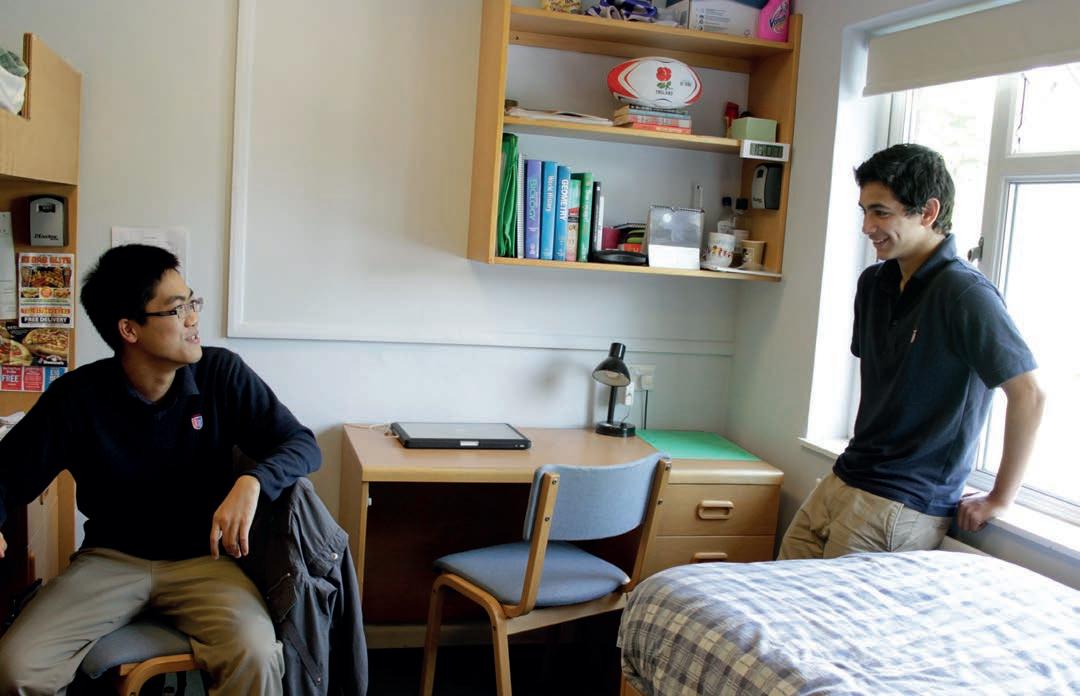
3 minute read
ACADEMIC COURSES
YOUR SUMMER OF FRIENDSHIPS –
LIVING IN A COMMUNITY
EXPECTATIONS
Most students who attend the TASIS England Summer Program are boarders, and life in a residential school is different from life in a day school. In order for everyone to live together happily and safely, specific expectations for behavior are set forth formally in writing and informally, as dictated by common sense. These expectations are based on the need for community members to conduct themselves in a way that builds mutual trust and respect. Examples of informal expectations for behavior include: arriving to class and activities on time, treating fellow students and teachers politely and respectfully, and using appropriate language. Formal expectations for behavior include, but are not limited to, prohibitions against drugs, smoking, drinking, and stealing. Breaking these rules will result in more serious consequences. The vast majority of students who attend our summer programs come to learn, have fun, and make new friends, and there are rarely serious infractions of major rules. TASIS England reserves the right to dismiss a student who has demonstrated that he or she is an unsatisfactory member of the school community. If, in the School’s judgment, a student’s conduct on or away from campus indicates that he or she is consistently out of sympathy with the ideals, objectives, and programs of the School, parents will be required to withdraw the student, even though there may be no infraction of a specific rule.

DORM LIFE
Living in a dorm is fun and enjoyable. Students find that, in addition to making new friends, living in a community atmosphere helps them to develop independence, maturity, and confidence. Boys and girls are strictly segregated,
MEDICAL INFORMATION
Two fully qualified nurses live on campus and are available to attend to students’ health needs. If a student requires the attention of a physician during his or her stay, the nursing staff will take care of all arrangements, and parents will be notified immediately.
and it is TASIS’ policy to mix nationalities and languages within individual rooms. Because of this, TASIS does not accept special roommate requests. The number of students in each dormitory depends on the size of the facility and the age of the students, as students of similar ages are grouped together. Students are encouraged to keep rooms clean and tidy, and counselors and teachers oversee daily life in the dormitory.
YOUR SUMMER –
YOUR TEACHERS AND COURSES
FACULTY MEMBERS IN THE TASIS ENGLAND SUMMER PROGRAM ARE EXPERIENCED, PROFESSIONAL EDUCATORS. IN THE ENGLISH LANGUAGE PROGRAM, TEACHERS USUALLY HOLD RECOGNIZED BRITISH OR AMERICAN TEACHING QUALIFICATIONS. OUR TEACHERS ARE CAREFULLY CHOSEN FOR THE QUALITY OF THEIR DEGREES OR THEIR RELEVANT WORK EXPERIENCE AS WELL AS FOR THEIR ENERGY AND ENTHUSIASM FOR WORKING WITH YOUNG PEOPLE.
Small classes provide personalized instruction and individual attention for each student. The friendly interaction of staff and students greatly enriches the experience and creates an environment of mutual respect.
• Average faculty to student ratio: 1:7 • Maximum class size: 14
CREDIT COURSE
For a course eligible for credit, TASIS provides qualifying students with a Certificate of Credit, which indicates that the amount and quality of the work done is deemed credit-worthy by TASIS England. However, credit is awarded by the student’s school, and students must confirm all credit arrangements with the academic office at their own school prior to enrollment. GRADE REPORTS

Grade reports and a summary of the work covered will be sent at the end of each session. Six-week academic students will receive their reports at the end of the first three-week period, and the final grade will be sent after the second session. SAFEGUARDING
TASIS England is committed to providing a safe learning environment that promotes the welfare of children and young people. Our faculty and staff uphold these values and serve as strong role models. The School’s caring and respectful community is based upon excellent relationships between staff and students, as well as between the students themselves.





